Informational
Key Officials
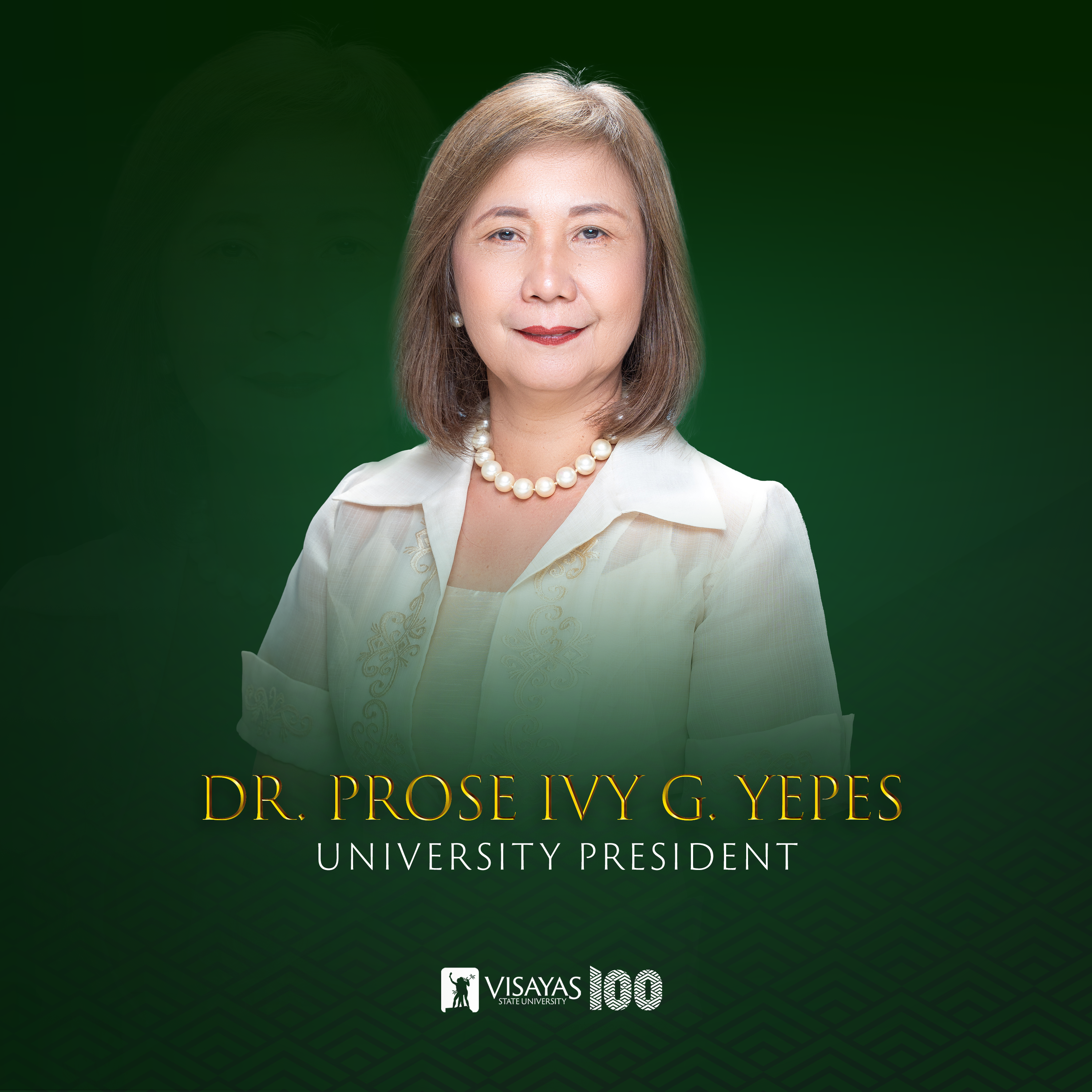
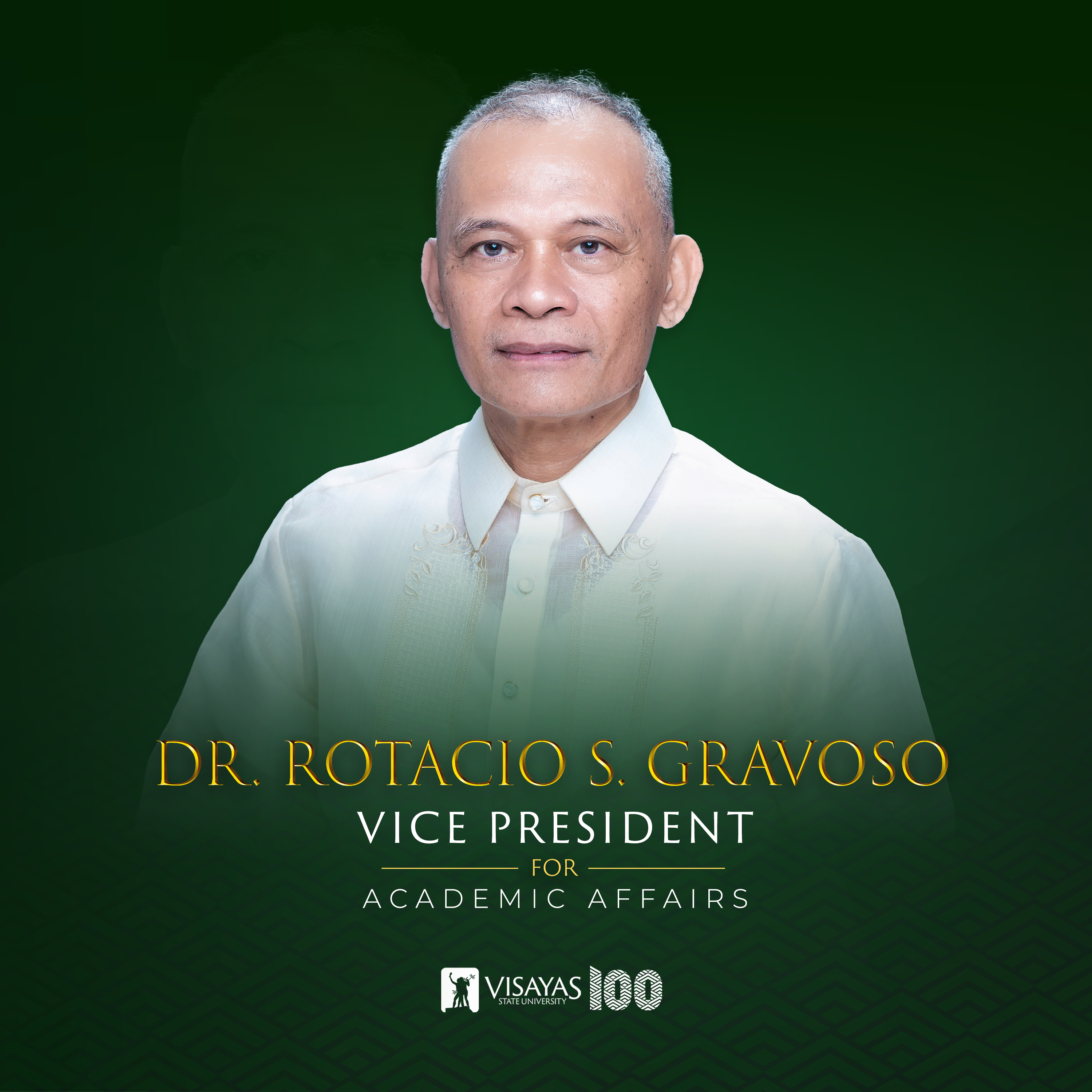
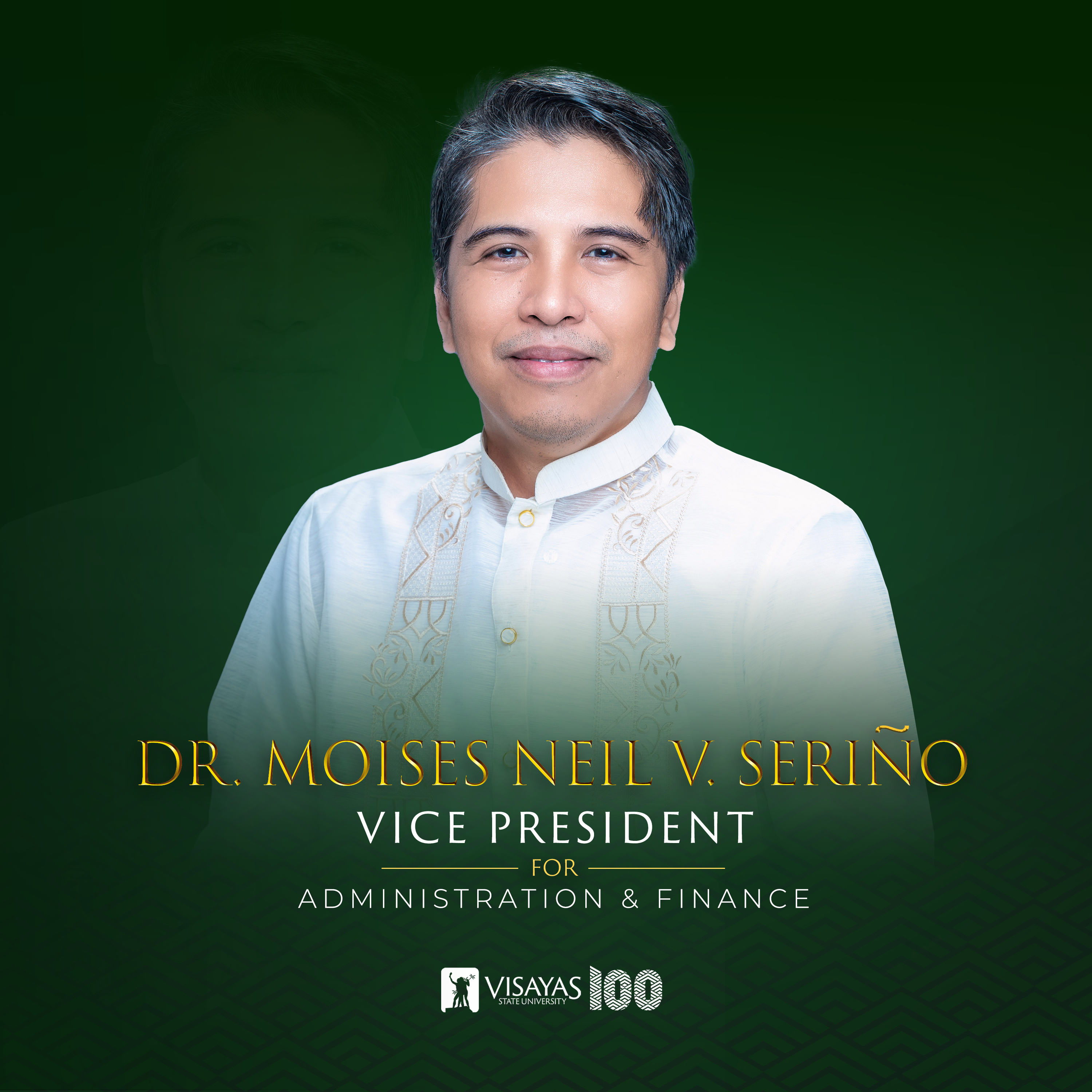
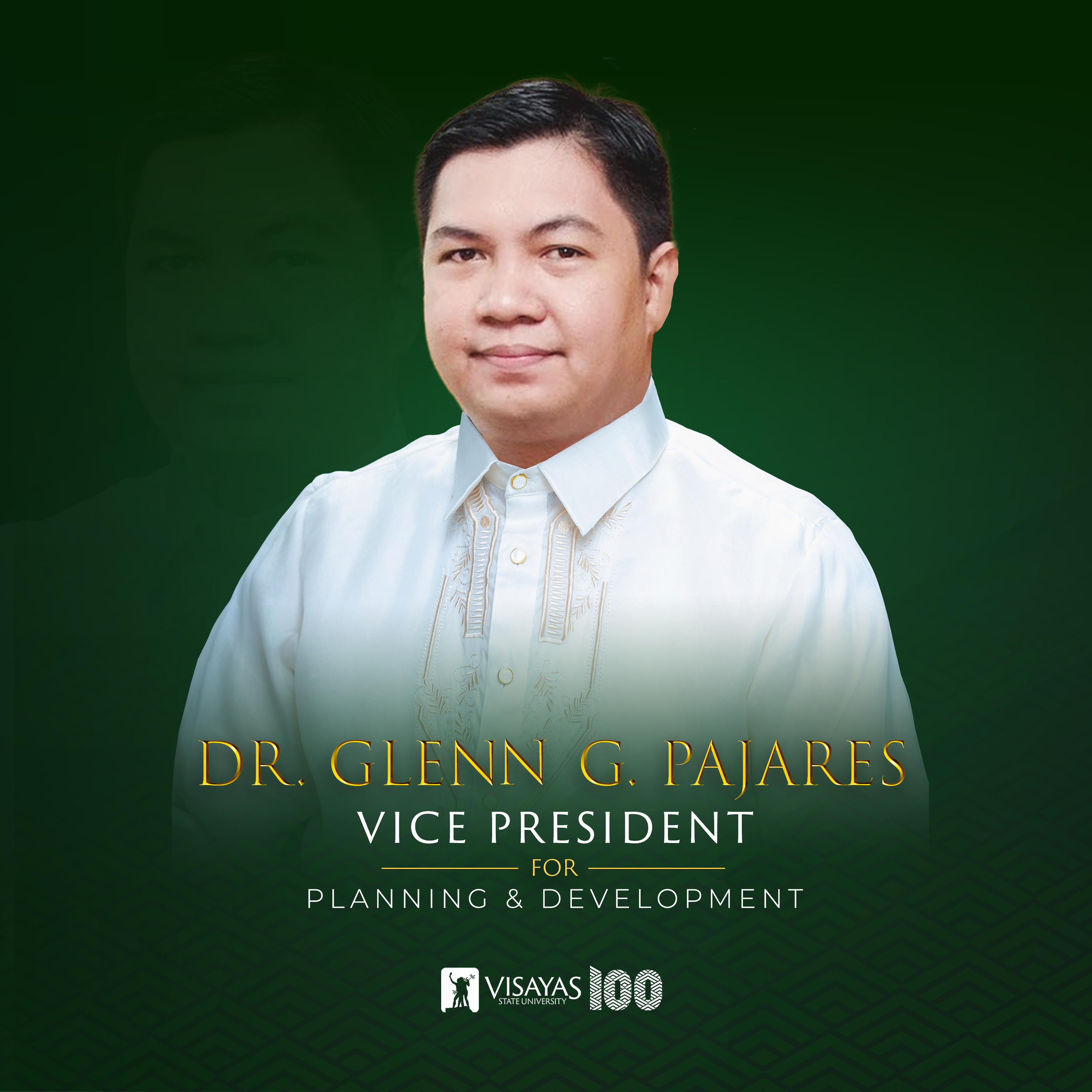
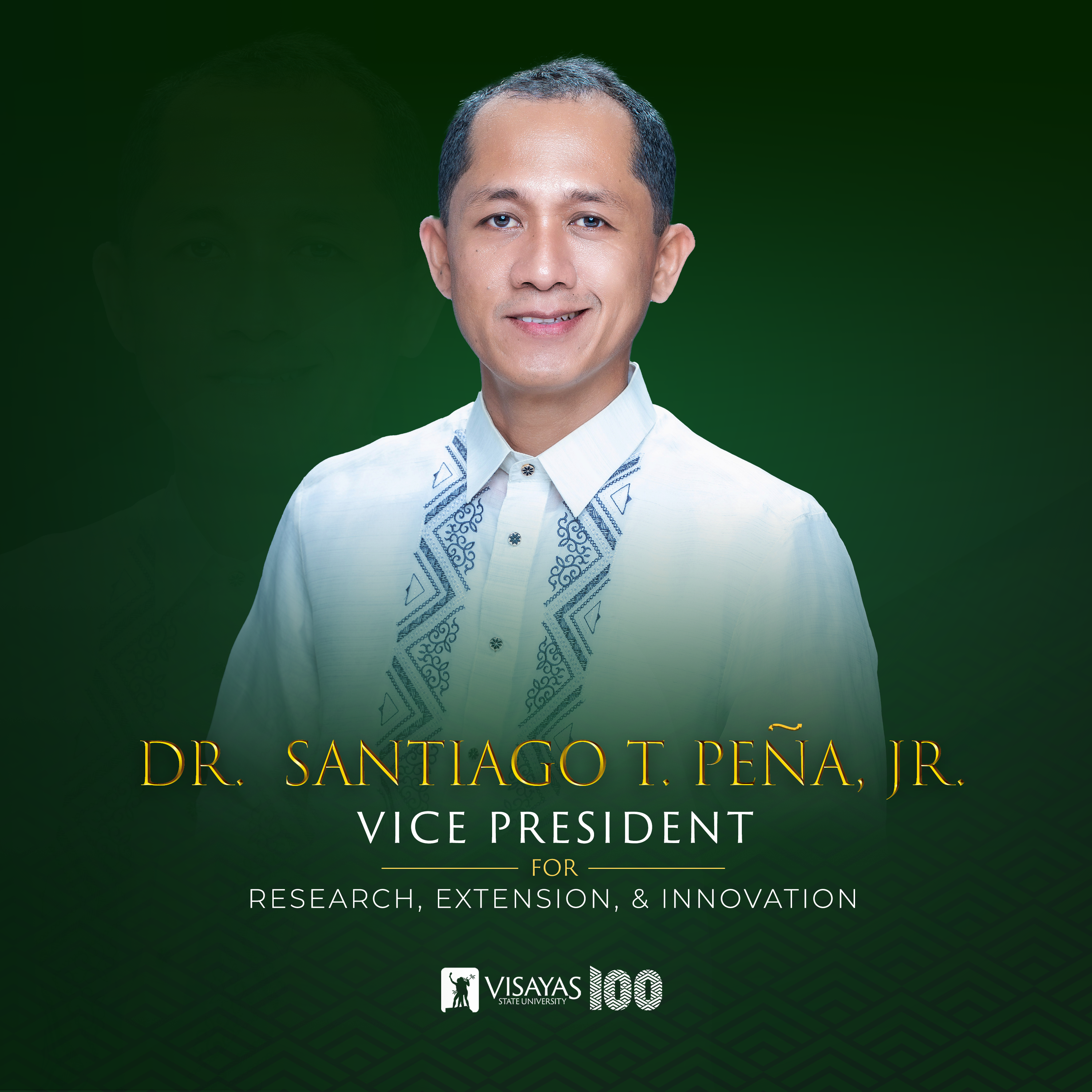
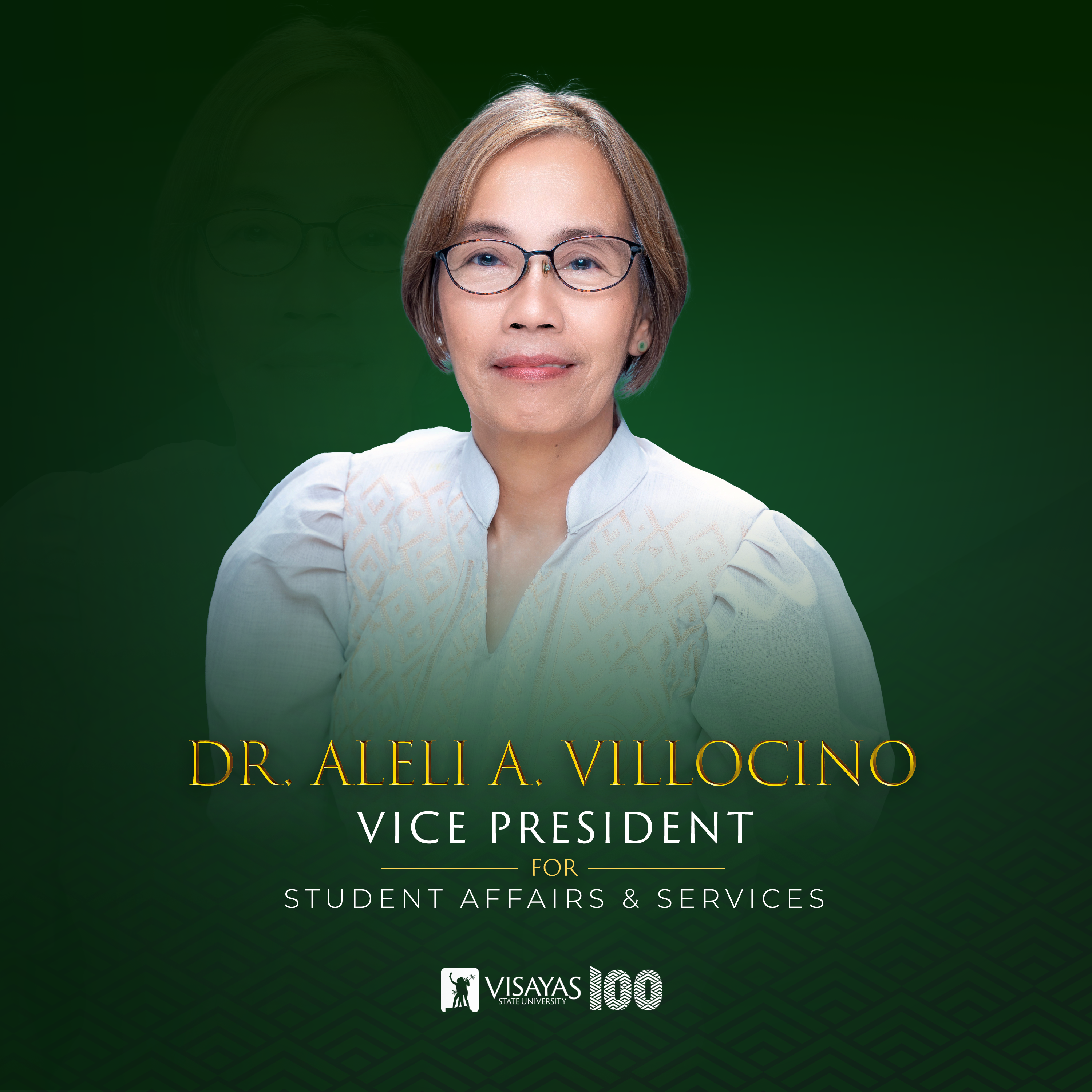
About DLABS
DLABS Vision/Mission
The Department of Liberal Arts and Behavioral Sciences commits to provide the chance for the total development of the students who can enhance the general well-being of their families through effective instruction, meaningful research and functional extension for rural development.
Goal
Department of Liberal Arts and Behavioral Sciences pledges to support the fulfillment of VSU’s principal mandate to provide higher professional and technical instruction in agriculture and related fields. DLABS will help promote research graduate studies and leadership in cultural and social aspects of development especially in agricultural rural communities.
DLABS hopes to help produce well-rounded graduates of agriculture and similar fields; graduates who can assist to the general development of the countryside; graduates who are not only technology-oriented but also culturally developed and socially-conscious individuals.
Objectives
- General Objectives
- Develop high caliber VSU graduates with strong background in the humanities and social sciences and who can provide effective leadership in scientific investigation.
- Become a center in the application of new knowledge for cultural and social upliftment.
- Specific Objectives
- Graduate Program
- Provide a pragmatic leadership and expertise in language teacher training.
- Promote productive scholarship through research-oriented projects and enriched curricular activities.
- Encourage students to be self-reliant and practice independent thinking through extramural studies while still carrying out their jobs and other responsibilities.
- General Preparatory Program
- Provide basic liberal arts and social science courses such as English, Filipino, Humanities, Psychology, Social Science, Speech, Philosophy and Spanish, for all degree and non-degree programs of VSU.
- Develop student’s communication sills useful in their fields of specialization.
- Provide students with experiences designed to enhance their fields of specialization.
- Enliven teaching approaches by accelerating general teacher improvement through in service trainings and professional exchange program.
- Strengthen the development of instructional materials.
- Continuously monitor and evaluate students’ performance to seek venues for improving instructions.
- Undergraduate Program
- Prepare students for language and social science activities in agro-technical schools and colleges as well as language learning researches.
- Expose students to language learning activities, theories and research methodologies in language, language acquisition, and language teaching.
- Develop a sense of literary awareness, taste, and creativity and to promote appreciation of the performing arts.
- Provide support to all students in understanding theories other courses through Instructional Materials (IM) that go across curriculum.
- Research
- Provide students and teachers a climate that inspires the development of research-oriented minds by leading them through instruction.
- Conduct researches that are truly responsive to institutional, local, regional or national goals and studies that could strengthen the department’s curricular programs.
- Extension
- Prepare, collect and evaluate scripts with environmental and developmental concerns.
- Provide necessary training to target clientele for the development of the community’s human resources for cultural and social development.
- Present development plays, dramas with developmental themes that can really respond to the particular community needs.
- Make all VSU staff available for consultancy and other services needed by target communities.
About CoE
The College of Engineering (CoE) was established to cover engineering degree programs and other engineering-related courses in the university in response to the Board of Regents' Resolution No.74, series of 2009.It aims to optimize coordination and delivery of functions in instruction, research and extension and production in the Visayas.
CoE functions under this organizational structure.
Vision
College of Engineering as the Center of Excellence in Engineering Education, Research and Development in the Visayas
Mission
Provide excellent instruction, condut relevant reseach, and foster community engagement that produce highly competent graduates in engineering necessary for the development of the country
Goals
1. Sustained Excellence in Instruction
2. Innovative RDE System and Competitive S&T Products
3. Adequate and sustainable resource generation activities
4. Functional and Adequate Physical Facilities and Infrastructure
Member Agency
|
Philippine Council for Agriculture, Aquatic and Natural Resources Research and Development (PCAARRD)
|
Visayas State University (VSU)
|
||||||||||||||||
|
Department of Agriculture-Bureau of Agricultural Research (DA-BAR)
|
University of Eastern Philippines (UEP)
|
||||||||||||||||
|
Department Of Agriculture Region 8 (DA8)
|
Eastern Samar State University (ESSU)
|
||||||||||||||||
|
Agricultural Training Institute (ATI)
|
Samar State University (SSU)
|
||||||||||||||||
|
Fiber Development Authority (FIDA-8)
|
Northwest Samar State University (NwSSU)
|
||||||||||||||||
|
Philippine Coconut Authority (PCA-8)
|
Southern Leyte State University (SLSU)
|
||||||||||||||||
|
Department of Environment and Natural Resources, Region 8 (DENR-8)
|
Naval State University (NSU)
|
||||||||||||||||
|
Department of Agrarian Reform, Region 8 (DAR-8)
|
Eastern Visayas State University (EVSU)
|
||||||||||||||||
|
Department of Science and Technology, Region 8 (DOST-8)
|
University of the Philippines Visayas Tacloban College (UPV)
|
||||||||||||||||
|
National Economic and Development Authority, Region 8 (NEDA-8)
|
Palompon Institute of Technology (PIT)
|
||||||||||||||||
|
Ormoc City
|
Office of the Provincial Agriculturist-Leyte, OPA-Leyte
|
||||||||||||||||
|
Department of Agriculture-Bureau of Agricultural Research (DA-BAR)
|
Office of the Provincial Agriculturist-Southern Leyte (OPA-So.Leyte)
|
||||||||||||||||
|
Office of the Provincial Agriculturist-Eastern Samar (OPA-E. Samar)
|
Office of the Provincial Agriculturist- Biliran (OPA-Biliran)
|
College of Engineering | Organizational Structure

Under the VSU system, the CoE Dean performs under the supervision of the Office of the Vice President for Instruction. The Dean oversees the operations of all various academic departments, each of which are led by a Department Head. Assisting the Dean is the College Secretary along with the administrative support staff. The Department Heads spearhead program planning and implementation in their respective units in consultation with their organic staff and stakeholders at large.

